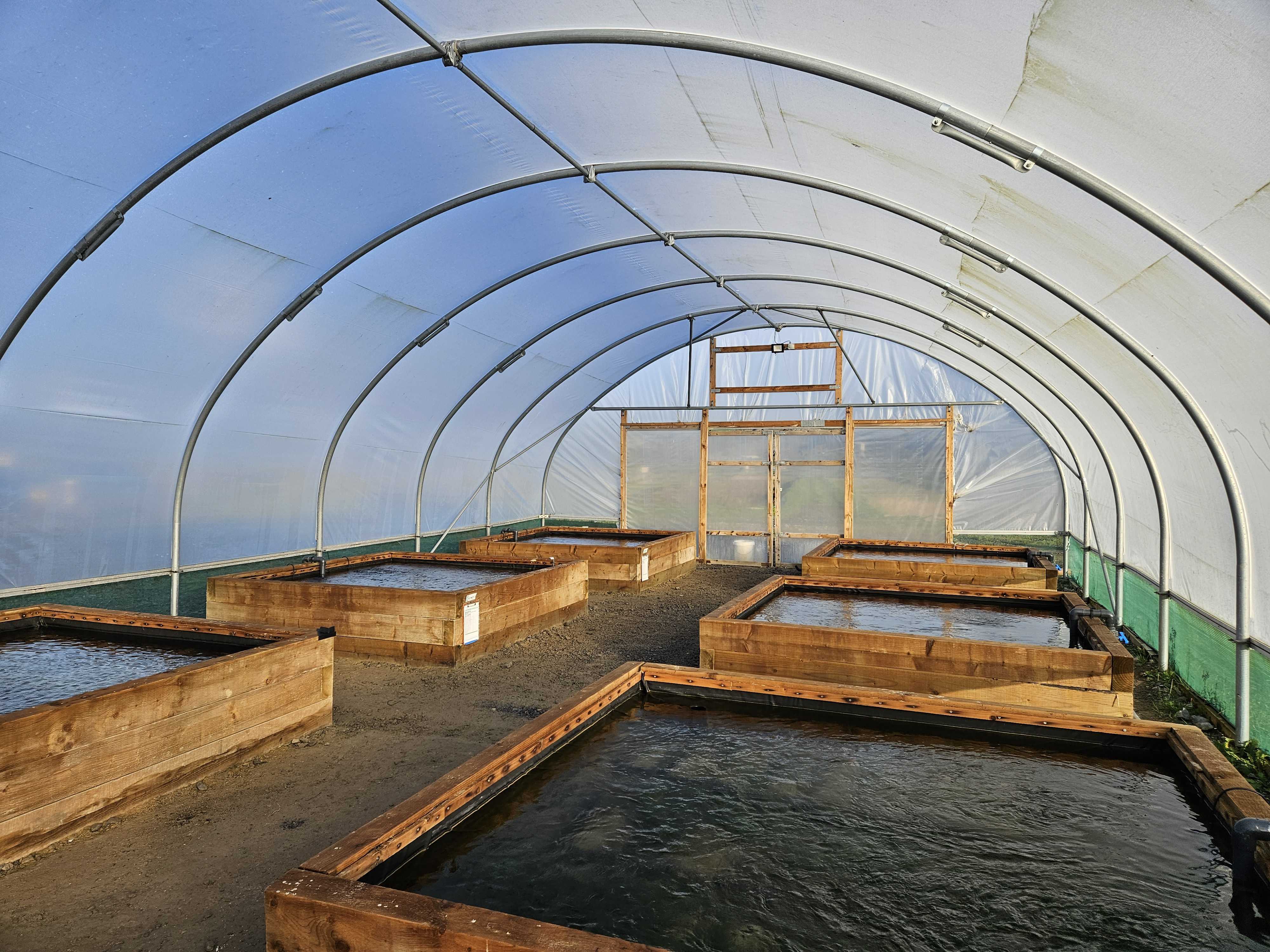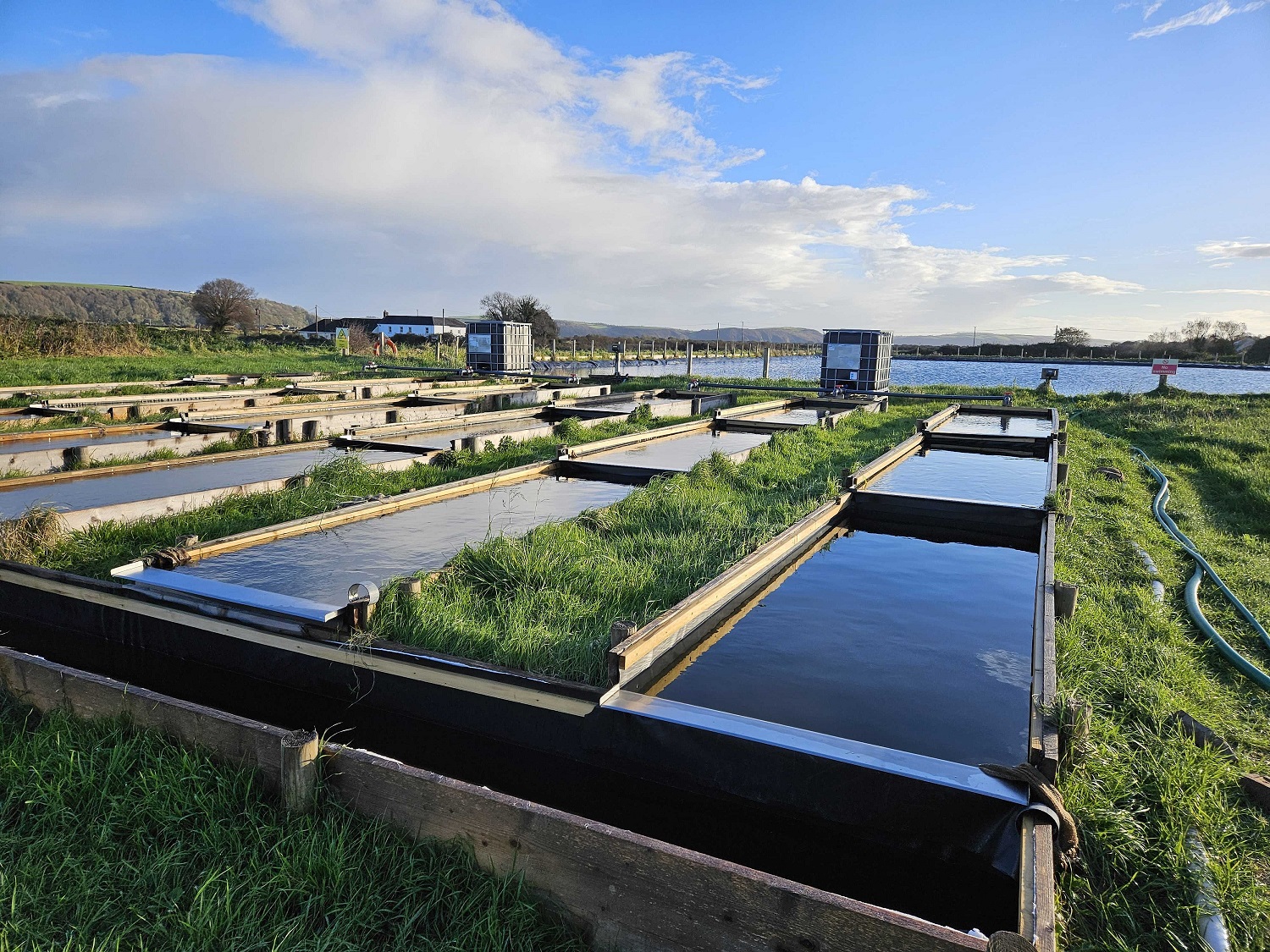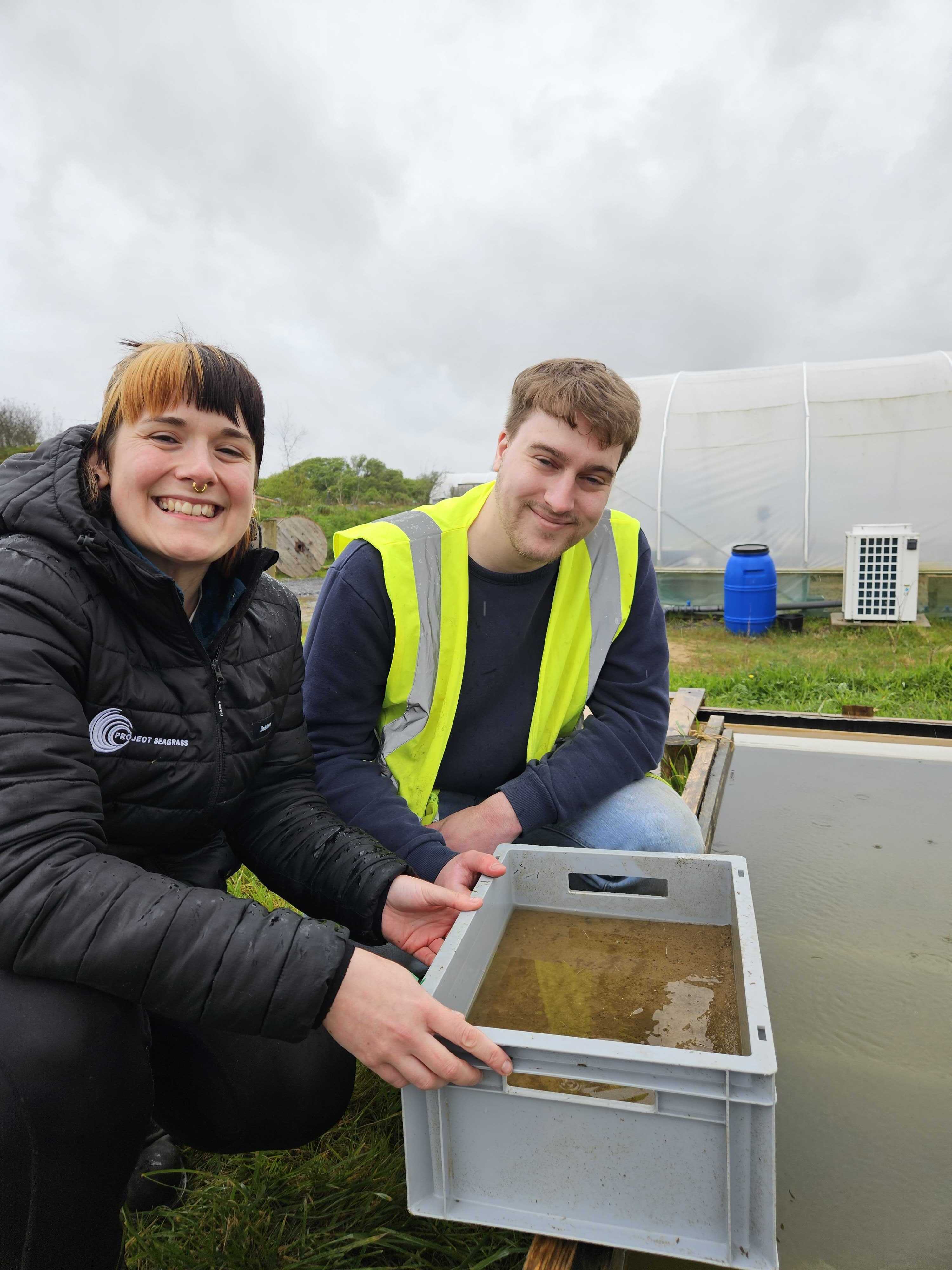Project Seagrass in Wales works to protect and rejuvenate seagrass meadows across the world, which since the 19th Century have declined by about 1/5. These seagrass habitats play a vital role in preserving biodiversity (home to a variety of fish and sea creatures), maintaining fisheries, capturing carbon and protecting coastlines. Through research, education and advocacy, Project Seagrass is developing innovative practices with far reaching benefits. You can read its strategic plan here.
In 2020, Project Seagrass established a pilot seagrass nursery to determine whether they were able to grow mature seagrass at scale to support restoration efforts in the field and conducted a number of planting trials. Plants developed flowers and seeds which was great news! Since then they have developed a large-scale controlled seed storage unit – housing over over 1.2 million seeds in 2023. The seeds are stored in a way designed to inhibit germination so they can be kept long-term until they are ready to be planted.
Ozone was delighted to be able to support the upscaling of this work over the course of 2 years in the following ways… Firstly, with the planting of 20,000 seagrass plants in South Wales. Having assessed various sites, the intention is to have two sites at Burry Inlet (Llanelli), one sandy and one muddy, along with one at Cardiff Dock (muddy). This gives the opportunity to explore planting marina and noltii together (both locations), whilst also exploring the impact of sediment differences (Burry inlet), but this is contingent on further analysis. Next steps include gaining the appropriate permissions for the work, as these sites are dependent on obtaining the relevant licences.
Secondly, a nursery trainee has been recruited to undertake pond maintenance and aquarium checks.
And last, but not least Ozone will fund a new polytunnel that will allow each nursery pond to run separately. In the current polytunnel, all 6 ponds run on one system (this is risky because disease can spread more quickly and the conditions that can be tested are limited). Multiple ponds means more species of seagrass and multiple conditions (eg. different water temperatures) can be trialled.
We look forward to providing you with more updates on this project in due course.


